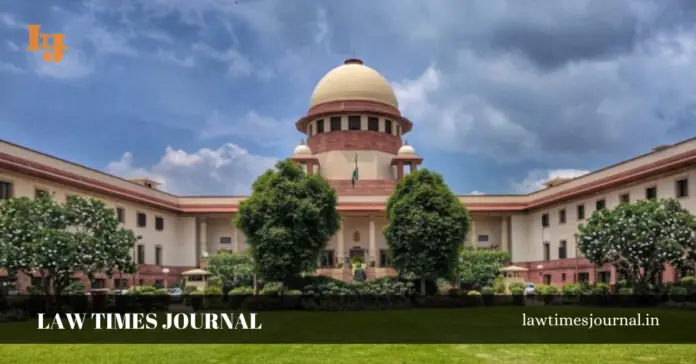
The Supreme Court bench of Justice D.Y. Chandrachud & Justice Indira Banerjee upheld that dismissal of police constable said that dismissal can be done even if the person had been acquitted in the case.
Accused in the case Heem Singh was a constable in Rajasthan where he was named in a murder FIR for which charge-sheet was filed. During the trial a memorandum was issued to him convening disciplinary action under Rajasthan civil Services (Classification, Control and appeal) rules, 1958. It finally concluded that conclusion that though he had been given the benefit of doubt in the criminal trial, the charges against him stood establish. He was thus dismissed.
The high court of Rajasthan dismissed the writ relating dismissal and order reinstatement of constable without back wages.
In the appeal filed in Supreme Court against the decision of High Court, the bench said him to be dismissed from the service and acquitted in case.
Supreme Court noted that in Southern Railway Officers Association v. Union of India, it has been held that an order of dismissal can be passed even if the official has been acquitted of the said charges.
The court said that “In exercising judicial review in disciplinary matters, there are two ends of the spectrum. The first embodies a rule of restraint. The second defines when interference is permissible. The rule of restraint constricts the ambit of judicial review. This is for a valid reason. The determination of whether a misconduct has been committed lies primarily within the domain of the disciplinary authority. The judge does not assume the mantle of the disciplinary authority. Nor does the judge wear the hat of an employer. Deference to a finding of fact by the disciplinary authority is a recognition of the idea that it is the employer who is responsible for the efficient conduct of their service. Disciplinary enquiries have to abide by the rules of natural justice. But they are not governed by strict rules of evidence which apply to judicial proceedings. The standard of proof is hence not the strict standard which governs a criminal trial, of proof beyond reasonable doubt, but a civil standard governed by a preponderance of probabilities. Within the rule of preponderance, there are varying approaches based on context and subject. The first end of the spectrum is founded on deference and autonomy – deference to the position of the disciplinary authority as a fact finding authority and autonomy of the employer in maintaining discipline and efficiency of the service. At the other end of the spectrum is the principle that the court has the jurisdiction to interfere when the findings in the enquiry are based on no evidence or when they suffer from perversity. A failure to consider vital evidence is an incident of what the law regards as a perverse PART J 36 determination of fact. Proportionality is an entrenched feature of our jurisprudence. Service jurisprudence has recognized it for long years in allowing for the authority of the court to interfere when the finding or the penalty are disproportionate to the weight of the evidence or misconduct. Judicial craft lies in maintaining a steady sail between the banks of these two shores which have been termed as the two ends of the spectrum. Judges do not rest with a mere recitation of the hands-off mantra when they exercise judicial review. To determine whether the finding in a disciplinary enquiry is based on some evidence an initial or threshold level of scrutiny is undertaken. That is to satisfy the conscience of the court that there is some evidence to support the charge of misconduct and to guard against perversity. But this does not allow the court to re-appreciate evidentiary findings in a disciplinary enquiry or to substitute a view which appears to the judge to be more appropriate. To do so would offend the first principle which has been outlined above. The ultimate guide is the exercise of robust common sense without which the judges’ craft is in vain.”
Read judgment –https://main.sci.gov.in/php/case_status/case_status_process.php?d_no=41691&d_yr=2019








